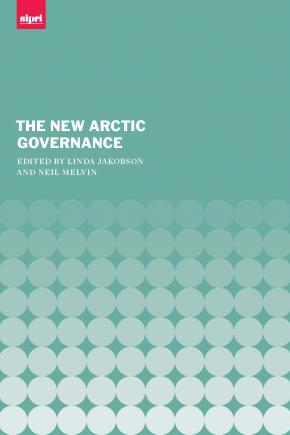The New Arctic Governance

Despite many predictions to the contrary, the Arctic has emerged today as a zone of cooperation. At the core of regional stability and security is an emerging architecture of cooperation focused on the Arctic Council. This new order is based not on military strength or a scramble to control resources, but on the multilateral pursuit of common interests. This book focuses on understanding and explaining the emergence of cooperation in the Arctic through an exploration by leading scholars and experts on the region of a key set of interlinked questions. What constitutes the current form of Arctic governance? What explains the emergence of this form of governance in the Arctic? Which are the emerging dynamics and actors that affect regional governance today?
At a time when many regions of the world are facing growing confrontation and even conflict, the authors consider whether the experience of fashioning multilateral, cooperative and peaceful governance in the Arctic offers lessons to other parts of the world? Looking ahead, the volume is designed to explore the sustainability of current governance trends in the Arctic. To what extent is cooperation in the Arctic the result of issues specific to the region today? Are current relationships and institutions durable in the light of emerging competition and even confrontation between key Arctic players elsewhere in the world? What steps might be taken to consolidate cooperation as the central political and security dynamic in the Arctic?
1. Introduction by Neil Melvin and Kristofer Bergh
2. Security in the Arctic: Definitions, challenges and solutions by Alyson J. K. Bailes
3. Understanding national approaches to security in the Arctic by Kristofer Bergh and Ekaterina Klimenko
4. Russia’s Arctic governance policies by Andrei Zagorski
5. North East Asia eyes the Arctic by Linda Jakobson and Seong-Hyon Lee
6. The Arctic Council in Arctic governance: The significance of the Oil Spill Agreement by Svein Vigeland Rottem
7. Conclusions

